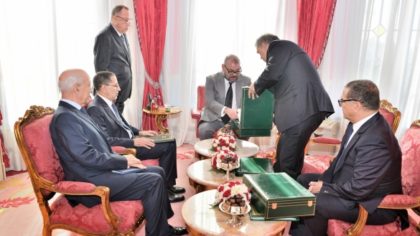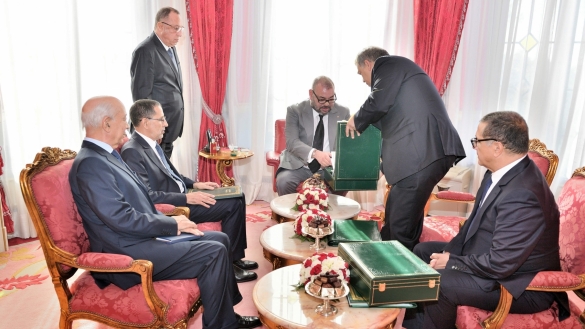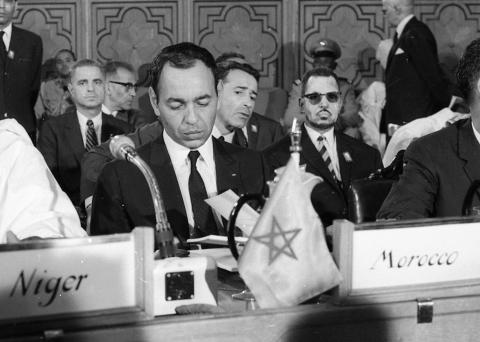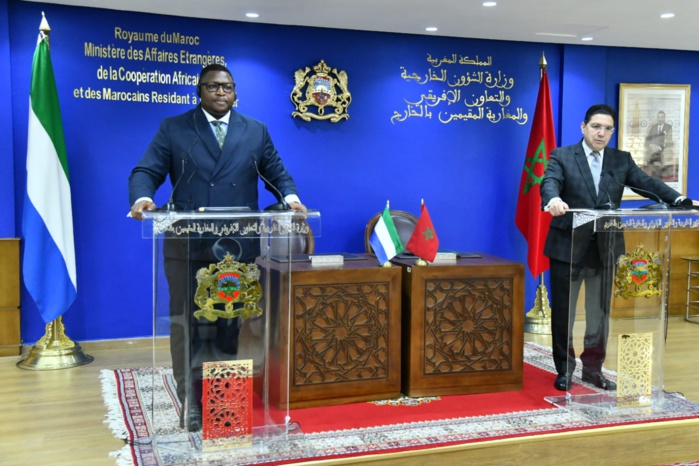 In a decision that signals the end of impunity for officials failing to deliver their duties, King Mohammed VI sacked four ministers of the current cabinet for falling short of achieving social and development goals and held other senior officials and former ministers responsible for the delay witnessed in the implementation of a set of state-funded projects, .
In a decision that signals the end of impunity for officials failing to deliver their duties, King Mohammed VI sacked four ministers of the current cabinet for falling short of achieving social and development goals and held other senior officials and former ministers responsible for the delay witnessed in the implementation of a set of state-funded projects, .
The officials were relieved of their duties after the King received a report of Morocco’s court of auditors pointing out to the numerous delays and negligence of the dismissed ministers and officials. He also asked the head of the government to prepare for a government reshuffle to replace the sacked ministers.
The move comes after several royal speeches where enhancing the performance of administrative bodies and improving the services they provide was a salient theme. “Managing the citizens’ affairs and serving their interests are both a national responsibility and a sacred trust, and in this regard there is no room for negligence or procrastination,” the King said in a speech in October 2016.
Last July, in a speech on the occasion of the Throne Day, King Mohammed VI expressed the aspirations of the Moroccan citizen to an administration that serves the interests of the homeland first and foremost. The speech echoed the demands of protesters for a dignified life and an administration that fulfills its duties within reasonable time limits.
Therefore, the sacking of underperforming ministers was foreseeable. At a Ministers’ Council held last June, King Mohammed VI criticized several ministers for the delay in the delivery of a set of development and social projects he had launched in Al Hoceima in October 2015, a year before the wave of popular protests outbroke in the region.
The Al Hoceima Lighthouse of the Mediterranean program, worth $665-million, is meant to promote the region’s development through implementing a host of projects slated for completion in 2019. Unfortunately, many of the projects scheduled in the program never saw the light of the day due to the lack of follow-up by relevant ministries.
The King has previously expressed his disappointment, discontent and concern, over the slow pace of the development projects in the Rif and ordered a probe to determine those responsible for stalling some projects.
Today, the probe unmasked the ministers who failed in their mission. The list includes ministers in the outgoing government who continued to hold portfolios in the current cabinet. These are Mohamed Hassad, Minister of National Education, former Minister of the Interior in the outgoing government; El Houssaine El Ouardi, Health Minister; and Mohamed Nabil Benabdellah, Housing Minister, a statement by the royal office said.
Larbi Benckheikh, Secretary of State in charge of vocational training and former Director General of the Vocational Training Institute (OFPPT) as well as Ali Fassi Fihri, Director General of the National Office for Water and Electricity, were also sacked, the statement said.
The Royal statement also expressed the king’s disappointment regarding the performance of five ministers who served in Benkirane’s government and stressed that they will never be entrusted again with a public mission. These include Rachid Belmokhtar, former Minister of National Education, Lahcen Haddad, former Minister of Tourism, Lahcen Sekkouri, former Minister of Youth and Sports, Mohamed Amine Sbihi, former Minister of Culture, and Hakima El Haïté, former Secretary of State in charge of the environment.
The Royal rant against low performing ministers and officials is indicative of the King’s personal interest and high priority he attaches to the implementation of development projects in all Moroccan regions.
The Royal decision also shows that there will be no compromise with upholding the Constitution notably the second paragraph of Article 1, which links public office with accountability.
“Whether a project concerns a district, a hamlet, a city, a region or the entire country, it still has the same objective, which is to serve citizens. In the eyes of citizens, digging a well or building a dam, for instance, are equally important,” the Monarch stressed in the State of the Nation Speech last July.
“This is the dawn of a new era in which there is no difference between officials and citizens as far as civic rights and obligations are concerned; nor is there room for shirking responsibility or avoiding sanction,” King Mohammed VI had underscored.



